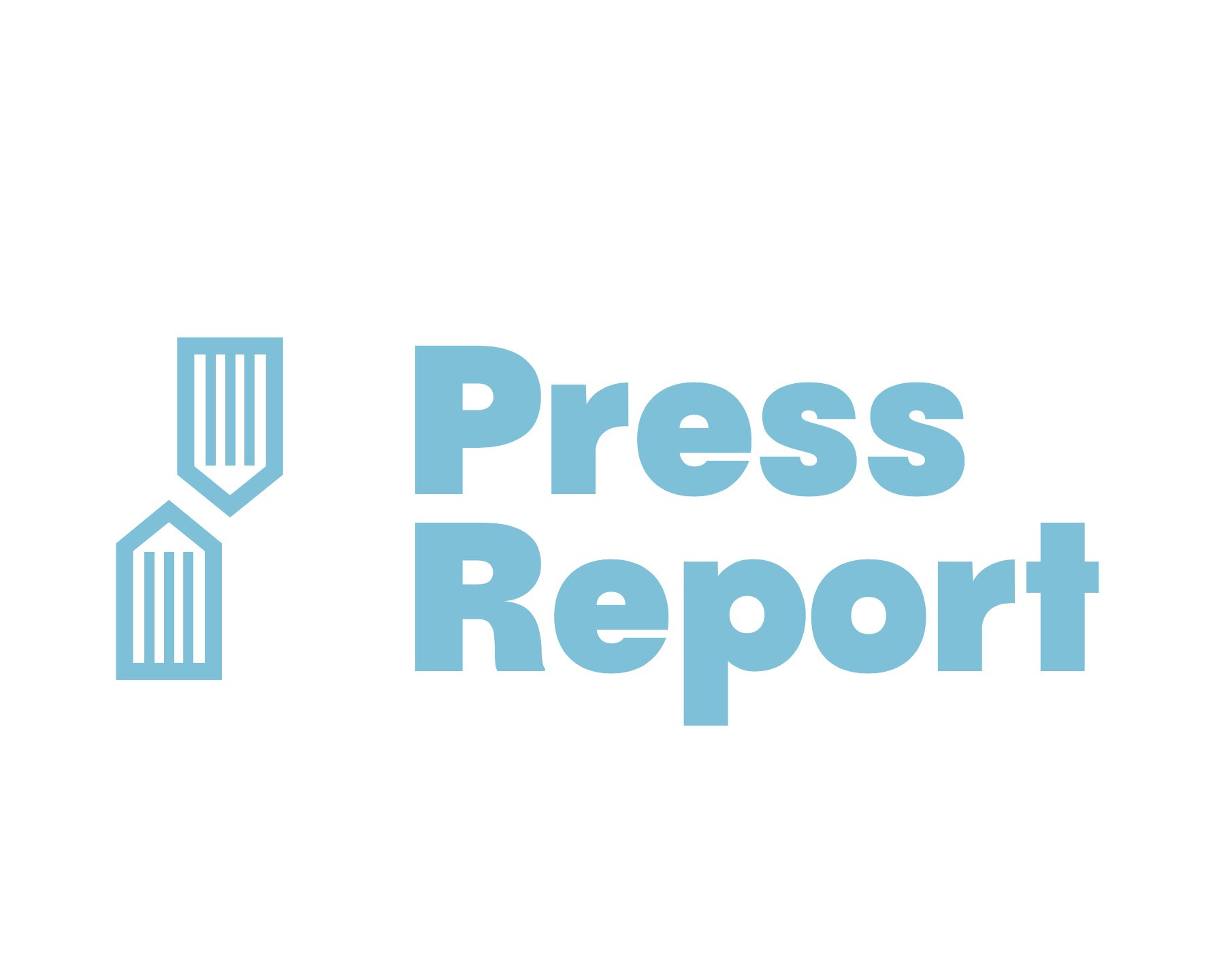AI News
AI Safety Concerns: Controlling the Unpredictable Future
Navigate the intricate realm of AI safety concerns and the ethical dilemmas surrounding controlling an unpredictable future.

As artificial intelligence advances to levels of complexity never seen before, worries about AI safety have escalated. The idea of managing an unpredictable future in which AI systems could exceed human abilities introduces complex ethical and practical challenges.
The discourse around establishing safeguards to ensure the responsible development of AI is gaining momentum, and the need for proactive measures to mitigate potential risks is undeniable.
In this complex landscape, the quest for aligning AI advancements with human values and establishing robust safety protocols emerges as a critical imperative, shaping the trajectory of AI innovation and its impact on society.
Key Takeaways
- Developing provably safe AI systems is crucial to control AI’s unpredictable future.
- Mechanistic interpretability and formal verification aid in creating transparent and controllable AI.
- Responsible AI development requires caution, ethical practices, and avoiding reckless pursuit of superintelligence.
- Balancing AI progress with safety measures ensures AI aligns with human values for a beneficial future.
Rapid Advancements in AI Technology
The exponential growth and transformative evolution of artificial intelligence (AI) technology in recent years have propelled the field into uncharted territories, raising significant concerns and considerations among industry experts and researchers alike.
As AI progresses towards potentially achieving Artificial General Intelligence (AGI), ethical implications and societal impact become paramount areas of focus. The rapid advancements in AI technology have the potential to revolutionize various industries, offering immense benefits but also posing significant risks.
Ensuring that AI development aligns with ethical principles and considers the broader societal implications is crucial to prevent unintended consequences. As we delve deeper into the realm of AI, it is imperative to approach these advancements with caution, prioritizing responsible AI practices to mitigate potential negative impacts on society.
Risks of AGI and Superintelligence

Navigating the realm of advanced artificial intelligence development requires a critical examination of the potential risks associated with achieving Artificial General Intelligence (AGI) and superintelligence.
Risks of AGI and Superintelligence:
- Existential Threats: AGI and superintelligence pose existential risks to humanity if not properly controlled.
- Unpredictable Behavior: Superintelligent AI may exhibit unpredictable and potentially harmful behaviors beyond human comprehension.
- Global Impact: The consequences of uncontained superintelligent AI could have far-reaching global implications, necessitating robust measures for containment.
In the pursuit of AI advancement, preventing existential threats and containing superintelligent AI are paramount to ensure a safe and controllable future landscape.
Importance of Provably Safe AI

In the realm of advanced artificial intelligence development, ensuring the safety and verifiability of AI systems is of paramount importance. Building trustworthiness through provably safe AI is essential for fostering reliability in AI applications. By implementing formal verification methods and program synthesis, developers can strive to create transparent and controllable AI systems that prevent harmful actions. Mechanistic interpretability plays a crucial role in understanding and extracting learned algorithms, contributing to the overall goal of provable safety. Integrating proof checkers into compute hardware can further enhance the assurance of safe AI operation. To ensure the responsible advancement of AI, prioritizing provably safe systems is key in mitigating risks associated with AI development.
Key Aspects Description Importance Formal Verification Ensures correctness of AI programs. High Program Synthesis Converts learned algorithms into provable code. Essential Mechanistic Interpretability Extracts algorithms for transparency. Crucial
Strategies for Responsible AI Development

To navigate the landscape of advanced artificial intelligence development responsibly, a strategic approach emphasizing ethical considerations and safety measures is imperative.
Strategies for Responsible AI Development:
- Building Trust: Establishing trust with users by ensuring transparency in AI systems’ functionality and decision-making processes.
- Ethical Deployment: Prioritizing the ethical deployment of AI technologies, considering the potential impacts on society, individuals, and the environment.
- Implementing Robust Safety Measures: Incorporating stringent safety protocols to mitigate risks associated with AI systems, safeguarding against unintended consequences and malicious use.
Balancing Benefits and Risks of AI

Balancing the potential benefits and accompanying risks of artificial intelligence requires a meticulous and nuanced approach that prioritizes ethical considerations and proactive safety measures. Weighing the benefits involves acknowledging AI’s capacity to revolutionize industries, improve efficiency, and advance scientific research.
However, mitigating risks is equally crucial to prevent unintended consequences such as job displacement, bias amplification, and potential misuse of AI technologies. Striking a balance between maximizing the advantages of AI while minimizing its potential hazards necessitates comprehensive risk assessments, robust regulatory frameworks, ongoing monitoring, and transparent communication.
It is imperative to foster a culture of responsibility and accountability among AI developers, policymakers, and stakeholders to ensure that the benefits of AI are harnessed ethically and sustainably.
Ensuring Alignment With Human Values

Ethical alignment in the development of artificial intelligence necessitates a meticulous integration of human values to guide responsible innovation and mitigate potential risks. In ensuring ethics and human-centered AI, the following considerations are paramount:
- Human-Centric Design: Prioritizing the incorporation of human values and ethics into AI systems to ensure decisions align with societal norms and moral standards.
- Transparency and Accountability: Establishing mechanisms for understanding and explaining AI decision-making processes to hold developers and systems accountable for their actions.
- Continuous Evaluation and Adaptation: Implementing frameworks for ongoing assessment of AI systems to address emerging ethical challenges and adapt to evolving societal values.
Frequently Asked Questions
How Do Industry Experts Define the Concept of Artificial General Intelligence (Agi) and How Does It Differ From Current AI Technologies?
Artificial General Intelligence (AGI) represents a hypothetical stage where machines can perform any intellectual task that a human can. Differing from current AI, AGI aims for human-level cognitive abilities, potentially leading to profound societal implications.
Ethical considerations surrounding AGI development and deployment are paramount, necessitating careful navigation of development challenges to ensure responsible innovation. Defining AGI involves understanding its potential impact on society, requiring vigilance and strategic planning.
What Are the Key Challenges in Developing Provably Safe AI Systems and How Are Researchers Addressing These Challenges?
In the pursuit of developing provably safe AI systems, researchers face significant challenges in ensuring reliability and implementing ethical decision-making processes. Key hurdles include formal verification, interpretability of AI algorithms, and preventing harmful actions. Researchers are actively addressing these challenges by emphasizing training methods that prioritize safety, leveraging mechanistic interpretability, and integrating proof checkers into hardware for preemptive risk mitigation.
These efforts aim to establish transparent, controllable, and ethically sound AI systems.
Can You Provide Examples of Past Incidents or Warnings That Have Influenced Current Approaches to Responsible AI Development?
Past incidents such as the Microsoft Tay chatbot debacle and the fatal Uber self-driving car accident have underscored the importance of ethical guidelines in AI development.
These incidents have influenced current approaches to responsible AI by emphasizing the need for robust ethical frameworks, rigorous testing, and continuous monitoring to prevent unintended consequences.
Researchers are now integrating these lessons into their work to ensure AI systems align with societal values and prioritize safety.
How Do AI Developers Ensure That Their Algorithms Continue to Function Correctly and Ethically Beyond Their Initial TrAIning Data?
To ensure that AI algorithms function correctly and ethically beyond initial training data, developers employ robust testing methodologies, continuous monitoring, and feedback loops.
By incorporating diverse datasets, conducting rigorous validation processes, and implementing interpretability tools like LIME or SHAP, developers can maintain accountability and promote ethical decision-making.
For example, simulating various real-world scenarios and assessing algorithmic responses can help identify and rectify potential biases or unintended consequences, ensuring long-term functionality and ethical integrity.
What Specific Measures Can Be Taken to Align AI Advancements With Human Values and Ensure Responsible Innovation in the Field?
To align AI advancements with human values and ensure responsible innovation, ethical guidelines and regulatory frameworks are imperative. Establishing clear ethical principles for AI development, such as transparency, fairness, and accountability, is crucial.
Implementing regulatory frameworks that monitor and enforce these guidelines can help mitigate risks and ensure AI technologies are developed and utilized in a responsible manner. Balancing progress with ethical considerations is essential for the sustainable advancement of AI.
Conclusion
In conclusion, the advancements in AI technology present both opportunities and risks that must be carefully considered.
According to a study by the Future of Humanity Institute, there is a 50% chance that AGI will be developed within the next 45 years, highlighting the urgency of implementing robust AI safety measures.
It is imperative to prioritize the ethical and controllable development of AI to ensure that it aligns with human values and does not pose unforeseeable dangers to society.
Bennett is the embodiment of versatility, adapting his writing to cover a broad spectrum of topics with professionalism and flair. Whether it’s breaking news, in-depth analyses, or feature pieces, Bennett’s contributions enrich Press Report with diverse perspectives and engaging content. His adaptability and keen journalistic instincts make him a vital member of our team, capable of capturing the essence of the moment in every story.
AI News
ByRetreat Celebrates the Exciting Relaunch of Coffee Lovers 101

Munich, 2024, May 16th — ByRetreat is delighted to announce the highly anticipated relaunch of Coffee Lovers 101, the ultimate online destination for coffee aficionados. The revamped website now offers an enriched user experience with updated content, innovative features, and a fresh new design, reaffirming its commitment to being the go-to resource for coffee enthusiasts worldwide.

About Coffee Lovers 101
Coffee Lovers 101 was founded by a dedicated group of coffee lovers who sought to share their passion and knowledge with a global audience. Over the years, it has become a beloved platform for anyone looking to deepen their understanding of coffee culture, brewing techniques, and the latest industry trends. The relaunch aims to elevate this experience by providing more comprehensive and engaging content.
Highlights of the Relaunch
- User-Friendly Design: The website has been completely redesigned to offer a more intuitive and seamless browsing experience. With an improved layout and navigation, visitors can easily find the information and resources they need.
- Expanded Content Library: Coffee Lovers 101 now features a wider array of articles, including detailed brewing guides, expert coffee tips, and up-to-date industry news. There’s something for everyone, from beginners to seasoned coffee drinkers.
- Thorough Product Reviews: With a dedicated product reviewer, the site offers in-depth and honest evaluations of the latest coffee appliances and accessories, helping readers make informed choices.
- Enhanced Community Interaction: The new Coffee Lovers 101 places a strong emphasis on community, introducing more interactive features such as forums, social media integration, and opportunities for user-generated content.
Meet the Team

The relaunch is driven by a talented and passionate team of coffee experts and content creators:
- Emma, Editor-in-Chief: Formerly with StrongMocha News Group, Emma leads the editorial team with a deep love for coffee and a sharp editorial eye.
- Jack, Content Creator: Jack, previously at Candy Artisans, brings his storytelling skills to create captivating and informative coffee-related content.
- Sophie, Social Media Manager: With her successful background at ByRetreat, Sophie enhances the site’s social media presence, fostering a vibrant and engaged community.
- Liam, Product Reviewer: Liam’s meticulous approach to product reviews, honed at Eat More Butter, provides readers with reliable insights into the best coffee gadgets on the market.
- Olivia, Marketing Specialist: Olivia’s expertise in digital marketing, developed at Cappuccino Oracle, drives the growth and visibility of Coffee Lovers 101, ensuring it reaches a global audience.
Quotes
Sophie, the Social Media Manager, expressed her enthusiasm for the relaunch: “At ByRetreat, we understand the importance of community and connection. The new Coffee Lovers 101 embodies these values and offers a fantastic platform for coffee lovers to learn, share, and grow together.”
About ByRetreat
ByRetreat is a leading digital platform that curates the best in lifestyle, wellness, and community engagement. Our mission is to connect individuals with the resources and inspiration they need to live their best lives. We are proud to support Coffee Lovers 101 in its journey to become the premier coffee resource on the web.
Contact Information
For more information about the relaunch of Coffee Lovers 101, please contact:
- Email: press@byretreat.com
- Website: www.byretreat.com
With the relaunch of Coffee Lovers 101, coffee enthusiasts everywhere have a renewed resource to deepen their appreciation and knowledge of coffee. Visit www.coffeelovers101.com to explore the new features and join the vibrant community of coffee lovers.

Olivia stands at the helm of Press Report as our Editor-in-chief, embodying the pinnacle of professionalism in the press industry. Her meticulous approach to journalism and unwavering commitment to truth and accuracy set the standard for our editorial practices. Olivia’s leadership ensures that Press Report remains a trusted source of news, maintaining the highest journalistic integrity in every story we publish.
AI News
StrongMocha News Group Announces the Exciting Relaunch of Coffee Lovers 101

Munich, 2024. May 16th — StrongMocha News Group is thrilled to announce the relaunch of Coffee Lovers 101, the premier online destination for coffee enthusiasts. The revamped site promises to deliver an enriched experience with new content, features, and a fresh look, reaffirming its commitment to providing the best in coffee knowledge, reviews, and community engagement.
About Coffee Lovers 101
Coffee Lovers 101, originally launched by a group of passionate coffee aficionados, has grown into a beloved resource for coffee lovers around the globe. The website covers everything from brewing techniques and product reviews to the latest trends in the coffee industry. With its relaunch, Coffee Lovers 101 aims to offer even more value to its readers with updated content and improved user experience.

Key Features of the Relaunch
- Enhanced User Experience: The website has been completely redesigned to ensure a more intuitive and user-friendly experience. The new layout makes navigating and finding the necessary information easier for visitors.
- Expanded Content: Coffee Lovers 101 now features a broader range of articles, including in-depth guides, expert tips, and industry news. Whether you are a novice or a seasoned coffee drinker, there’s something for everyone.
- Comprehensive Product Reviews: With a dedicated product reviewer, Coffee Lovers 101 provides honest and thorough reviews of the latest coffee appliances and gadgets, helping readers make informed purchasing decisions.
- Community Engagement: The revamped site emphasizes community more, with more interactive features such as forums, social media integration, and opportunities for user-generated content.
Meet the Team
A dynamic team of coffee experts and content creators spearheads the relaunch of Coffee Lovers 101:
- Emma, Editor-in-Chief: With her background at StrongMocha News Group, Emma leads the editorial team with a keen eye for detail and a passion for coffee innovation.
- Jack, Content Creator: Jack brings his storytelling expertise from Candy Artisans, crafting engaging and informative articles that captivate readers.
- Sophie, Social Media Manager: Sophie’s experience at ByRetreat ensures that Coffee Lovers 101’s social media presence is vibrant and interactive.
- Liam, Product Reviewer: Formerly with Eat More Butter, Liam’s meticulous approach to product reviews provides readers with reliable and comprehensive insights.
- Olivia, Marketing Specialist: Olivia’s marketing prowess, honed at Cappuccino Oracle, drives the website’s growth and visibility, reaching coffee lovers far and wide.
Quotes
Emma, the Editor-in-Chief, shared her excitement about the relaunch: “We are thrilled to bring Coffee Lovers 101 into a new era with a fresh look and expanded content. We aim to continue inspiring and educating our community about the wonderful world of coffee.”
About StrongMocha News Group
StrongMocha News Group is a leading provider of high-quality content across various niches, including food, technology, and lifestyle. Committed to excellence and innovation, It strives to deliver engaging and informative content to its diverse audience.

Contact Information
For more information about the relaunch of Coffee Lovers 101, please contact:
- Email: press@strongmocha.com
- Website: www.strongmocha.com
This press release marks a significant milestone in Coffee Lovers 101’s journey. With its relaunch, the website will become an even more essential resource for coffee enthusiasts everywhere. Visit www.coffeelovers101.com to explore the new features and join the community of passionate coffee lovers.
AI News
Understanding and Promoting Ethical AI Practices

As artificial intelligence (AI) becomes more integrated into our daily activities, understanding and promoting ethical AI practices is crucial. Ethical AI refers to the conscientious development and deployment of AI systems, emphasizing fairness, transparency, and accountability. Adhering to ethical standards ensures that AI technologies are unbiased, dependable, and beneficial for both businesses and the broader community.
At its core, ethical AI entails making ethical decisions throughout the entire AI lifecycle. From the design stage to data sourcing, deployment, and ongoing monitoring, we must be conscious of the potential biases and risks associated with AI. By addressing these ethical quandaries, we can harness the power of AI while minimizing potential harm.
In this article, we will delve into the importance of ethical AI practices, the key principles of ethical AI, responsible AI development, ethical data sourcing and management, global perspectives on AI ethics, and the practical implementation of ethical AI. Through these discussions, we aim to equip businesses and individuals with the knowledge and tools necessary to navigate the complex landscape of AI ethics.
Key Takeaways
- Ethical AI involves making responsible decisions throughout the AI lifecycle
- Transparency, fairness, and accountability are key principles of ethical AI
- Responsible AI development requires considering the societal impact and mitigating biases
- Ethical data sourcing and management are essential for maintaining trust and privacy
- Global collaboration is crucial in establishing ethical standards for AI
The Importance of Ethical Data and AI Ethics in Business
As companies increasingly leverage data and artificial intelligence (AI) to create scalable solutions, it is crucial to recognize the importance of ethical practices in managing data and developing AI systems. Responsible AI development requires businesses to prioritize ethical data sourcing and management to mitigate reputational, regulatory, and legal risks associated with AI technologies.
One of the key ethical quandaries in AI is the potential for biased algorithms and discriminatory outcomes. In recent years, lawsuits against companies like IBM, Optum, and Goldman Sachs have highlighted the need for ethical data and AI practices. Allegations of misappropriation of data and biased AI algorithms emphasize the importance of ensuring fairness, transparency, and non-discrimination in AI systems.
“Ethical data sourcing and management are essential for businesses to build trust, maintain integrity, and protect user rights,” says our AI ethics expert. “By implementing strong data privacy practices, obtaining proper consent, and addressing biases, companies can establish responsible AI systems that respect human values and avoid harm.”
Developing AI ethics programs that address these risks is crucial for organizations. These programs help establish guidelines and frameworks that promote transparency, fairness, and accountability throughout the AI lifecycle. By integrating ethical considerations into AI development and decision-making processes, businesses can build trust, minimize biases, and ensure that AI technologies are used responsibly for the benefit of both customers and society.
Table 1 summarizes the importance of ethical data and AI ethics in business:
| Benefits | Risks |
|---|---|
|
|
By prioritizing ethical data practices and developing AI ethics programs, businesses can navigate the complexities of AI while minimizing risks and ensuring responsible AI development and deployment.
Responsible AI and Trustworthy AI Solutions
As we continue to embrace the benefits of artificial intelligence (AI), it is crucial that we prioritize responsible AI practices to ensure the ethical and accountable use of these powerful technologies. Responsible AI entails designing, developing, and deploying AI systems with good intentions, empowering both employees and businesses while preserving fairness and transparency for customers and society as a whole.
To achieve responsible AI, organizations must establish robust governance strategies that outline clear guidelines for ethical AI development and deployment. These strategies should address potential biases, consider principles such as transparency, fairness, and privacy, and provide a framework for the ongoing monitoring of AI impacts. By adhering to these principles and governance strategies, businesses can build trust and confidence in the AI solutions they offer.
Trustworthy AI solutions are those that prioritize ethical considerations throughout the entire AI lifecycle. This includes incorporating ethical principles from the design stage, ensuring transparent and fair decision-making processes, and regularly auditing AI systems to identify and address potential ethical risks. By promoting responsible AI practices and building trustworthy AI solutions, we can foster an ecosystem that benefits both businesses and society at large.
| Principles of Responsible AI | Key Actions for Trustworthy AI Solutions |
|---|---|
|
|
By adopting responsible AI practices and developing trustworthy AI solutions, we can harness the full potential of AI while minimizing ethical risks. This approach not only benefits businesses by building trust with customers and stakeholders but also ensures that AI technologies contribute positively to our society.
Key Principles of Ethical AI
In the development and deployment of AI systems, it is crucial to adhere to key principles that promote ethical AI practices. These principles guide us in creating AI technologies that respect human values, avoid harm, and act as a beneficial force in society. By following these principles, we can ensure that AI systems are transparent, fair, non-discriminatory, and prioritize privacy and data protection.
Transparency and explainability are fundamental principles of ethical AI. It is essential that the inner workings of AI systems are understandable and accessible to users. By providing transparency, we can foster trust and enable users to make informed decisions regarding the use of AI technologies. Explainability allows us to identify and rectify any biases or discriminatory outcomes that may arise from AI algorithms.
Fairness and non-discrimination are critical aspects of ethical AI. It is crucial to ensure that AI systems do not favor or discriminate against any individual or group based on characteristics such as race, gender, or socioeconomic status. By promoting fairness and non-discrimination, we can create AI technologies that contribute to a more equitable and inclusive society.
Respecting privacy and protecting data are essential in the development and deployment of AI systems. Ethical AI practices require us to handle user data responsibly, ensuring its security and safeguarding individual privacy rights. By prioritizing privacy and data protection, we can mitigate the risks associated with data breaches and ensure that AI technologies respect user rights.
Key Principles of Ethical AI:
| Principle | Description |
|---|---|
| Transparency | AI systems should provide clear and understandable explanations of their operation and decisions. |
| Explainability | AI systems should be able to explain their decision-making processes and identify any biases or discriminatory outcomes. |
| Fairness | AI systems should be designed to ensure fairness and avoid discrimination against individuals or groups. |
| Non-discrimination | AI systems should not discriminate against individuals based on characteristics such as race, gender, or socioeconomic status. |
| Privacy | AI systems should respect user privacy rights and handle data securely. |
| Data Protection | AI systems should protect user data from unauthorized access and breaches. |
Ethical Data Sourcing and Management for AI
In the realm of artificial intelligence (AI), ethical data sourcing and management are paramount to ensuring the responsible and trustworthy use of AI technologies. We understand that ethical considerations, such as data privacy, consent, data security, and data management, play a significant role in maintaining the integrity and reliability of AI systems.

When it comes to data sourcing, organizations must prioritize obtaining data in a manner that respects privacy, consent, and individual data rights. This means adhering to legal requirements and obtaining explicit consent from individuals for the use of their data. By doing so, businesses can mitigate legal risks and build trust with their users.
Additionally, proper data management is crucial for upholding ethical standards in AI. This includes secure storage, controlled access, and regulated deletion practices to protect data privacy and respect individual rights. By implementing robust data management protocols, organizations can ensure that AI systems operate with integrity and maintain user trust.
Ethical Data Sourcing and Management Best Practices
- Obtain data through legal and ethical means, ensuring compliance with applicable privacy regulations.
- Explicitly obtain informed consent from individuals before using their data for AI purposes.
- Implement strong data security measures to protect data against unauthorized access or breaches.
- Establish controlled access protocols to limit data handling to authorized individuals and prevent misuse.
- Adopt regulated deletion practices to remove unnecessary data and respect individuals’ rights to data erasure.
By adhering to these best practices, organizations can uphold ethical standards in data sourcing and management for AI, ultimately fostering trust and accountability in their AI systems. This approach is essential to ensure the responsible and ethical use of AI technologies, safeguarding the interests and rights of both businesses and users.
| Key Considerations | Benefits |
|---|---|
| Data Privacy | Protects individuals’ personal information and upholds their privacy rights. |
| Consent | Ensures that data usage is transparent and respectful of individuals’ choices. |
| Data Security | Prevents unauthorized access or breaches, safeguarding sensitive information. |
| Data Management | Ensures data is handled responsibly and complies with legal and regulatory requirements. |
| Trust | Builds user trust in AI systems by demonstrating ethical practices in data sourcing and management. |
Global Perspectives on AI Ethics
As the field of artificial intelligence continues to evolve, it has become increasingly important to consider the ethical implications of AI technologies. Global perspectives on AI ethics are emerging as countries and international organizations recognize the need to establish guidelines and regulations for the responsible development and use of AI.
Several countries have taken the lead in shaping AI ethics by publishing their own guidelines. The European Union, Singapore, and Canada, for example, have each released their own AI ethics frameworks, emphasizing the importance of fairness, accountability, and human-centered values in AI development and deployment.
International collaboration is crucial in establishing globally accepted ethical standards. By working together, countries can share best practices, learn from each other’s experiences, and create a unified approach to AI ethics. This collaborative effort will help ensure that AI technologies are used in a way that benefits society while minimizing potential risks.
The Role of Ethical Guidelines and AI Regulations
Ethical guidelines and AI regulations play a vital role in shaping the future of AI ethics. These guidelines provide a framework for organizations and individuals to follow, ensuring that AI technologies are developed and used responsibly. By adhering to ethical principles such as transparency, fairness, and privacy, companies can build trust with users and stakeholders.
AI regulations provide a legal framework for governing the use of AI technologies. They help address concerns such as data privacy, algorithmic bias, and accountability. By implementing regulations, governments can protect individuals’ rights and ensure that AI technologies are used in a way that aligns with societal values.
By combining ethical guidelines and AI regulations, organizations can establish a comprehensive approach to AI ethics. This approach focuses on creating human-centered AI systems that respect individual rights, minimize biases, and promote fair and accountable decision-making.
| Country/Organization | AI Ethics Guidelines |
|---|---|
| European Union | Emphasizes fairness, accountability, and transparency in AI development. |
| Singapore | Focuses on ethical AI governance, accountability, and public participation. |
| Canada | Highlights the importance of human-centric AI and responsible innovation. |
Practical Implementation of Ethical AI
Implementing ethical AI practices is crucial for organizations to ensure responsible and accountable use of artificial intelligence technologies throughout the AI lifecycle. From the design stage to data sourcing and auditing AI systems, ethical considerations must be integrated at every step.
When designing AI systems, it is essential to prioritize ethical principles to guide decision-making. This includes transparency, explainability, fairness, non-discrimination, privacy, and data protection. By incorporating these principles, organizations can develop AI systems that respect user rights, mitigate biases and discrimination, and act in the best interests of society.
Data sourcing plays a critical role in ethical AI implementation. Organizations need to ensure that data is sourced ethically, with respect for privacy, consent, and data rights. Additionally, proper data management practices like secure storage, controlled access, and regulated deletion are necessary to protect data privacy and individual rights. By implementing ethical data sourcing and management strategies, organizations can maintain the integrity of AI systems and build trust with users.
Regular monitoring and auditing of AI systems are essential to ensure ongoing ethical practices. This involves evaluating the impact and performance of AI systems, identifying potential biases or ethical risks, and taking appropriate actions to address them. By continuously assessing AI systems, organizations can identify and rectify ethical issues, improving the overall ethical integrity of their AI technologies.
Implementing Ethical AI: Key Considerations
When implementing ethical AI, there are several key considerations that organizations should keep in mind:
- Develop an AI design process that incorporates ethical principles from the outset.
- Formulate guidelines and policies that clearly define ethical standards for AI development and deployment.
- Train and educate employees on ethical AI practices and the potential risks associated with unethical AI.
- Establish an ethical review process for AI systems and algorithms to identify and remediate biases or ethical concerns.
- Engage with external stakeholders, such as customers, regulators, and ethics boards, to gather feedback and ensure accountability.
| Key Steps for Ethical AI Implementation | Description |
|---|---|
| Integrate ethical considerations in AI design | Ensure that ethical principles are embedded in the design and development process of AI systems. |
| Source data ethically | Obtain data in a way that respects privacy, consent, and data rights. |
| Implement robust data management practices | Securely store, control access, and regulate deletion of data to protect privacy and individual rights. |
| Monitor and audit AI systems | Regularly assess the impact and performance of AI systems, identify biases or ethical risks, and take appropriate actions to address them. |
“Ethical AI implementation requires a holistic approach that encompasses design, data, and ongoing monitoring. By incorporating ethical considerations throughout the AI lifecycle, organizations can build trust, mitigate risks, and ensure responsible AI practices.”
Implementing ethical AI practices is not only a moral imperative but also a strategic advantage for organizations. By prioritizing ethics in AI development and deployment, businesses can build trust with users, avoid reputational damage, and navigate regulatory requirements more effectively. Ethical AI is the foundation for a responsible and accountable AI ecosystem that benefits both organizations and society as a whole.
The Future of AI Ethics
As AI continues to advance, the future of AI ethics holds great importance in ensuring responsible and ethical development of AI technologies. With each advancement, ethical guidelines and regulations need to be developed and implemented to guide the use of AI in a way that respects human values and societal well-being.
The rapid progress in AI brings forth new opportunities and challenges. AI advancements have the potential to revolutionize industries, enhance decision-making processes, and drive innovation. However, they also raise ethical concerns regarding bias, transparency, privacy, and accountability.
The development and implementation of ethical guidelines and regulations are crucial to address these concerns and shape the future of AI ethics,” says Dr. Jane Anderson, an AI ethics expert. “Responsible AI development involves incorporating ethical considerations from the early stages of AI system design and continuously monitoring and evaluating its impact on society.”
Ethical guidelines and regulations provide a framework for responsible AI development. They ensure that AI technologies are developed and used in a way that is transparent, fair, and accountable. These guidelines help mitigate potential biases and discriminatory practices, protect user privacy and data rights, and establish trust between users and AI systems.
The future of AI ethics also relies on international collaboration and the establishment of global standards. By aligning ethical principles and sharing best practices, the global AI community can work together to create a unified approach to responsible AI development. This collaboration will enable the development of AI technologies that serve the best interests of humanity and contribute positively to society.
Key Future Considerations
- Continued development and refinement of ethical guidelines for AI advancements
- Increased focus on transparency and explainability in AI systems
- Addressing biases and promoting fairness in AI decision-making
- Strengthening privacy and data protection measures in AI development
- Ensuring accountability and responsible use of AI technologies
The future of AI ethics holds the promise of shaping the ethical landscape of AI technologies. By prioritizing responsible AI development and adhering to ethical guidelines and regulations, we can build a future where AI technologies work in harmony with human values, respect individual rights, and contribute to a more equitable and inclusive society.
| AI Advancements | Ethical Guidelines | AI Regulations | Responsible AI Development |
|---|---|---|---|
| Advancing AI technologies that drive innovation and transform industries | Establishing guidelines to ensure transparent, fair, and accountable AI development | Implementing regulations to address potential biases and protect user privacy | Prioritizing ethical considerations throughout the AI development lifecycle |
| Enhancing decision-making processes through AI algorithms and models | Addressing biases and promoting fairness in AI decision-making | Creating regulations that govern the responsible use of AI technologies | Monitoring and evaluating the ethical impact of AI systems on society |
| Exploring new frontiers in AI research and applications | Sharing best practices and fostering international collaboration on AI ethics | Building a regulatory framework that ensures ethical AI deployment | Encouraging responsible AI development through organizational policies and practices |
Conclusion
Understanding and promoting ethical AI practices is crucial in the ever-advancing field of artificial intelligence. By incorporating ethical guidelines and responsible AI principles, businesses and organizations can mitigate risks, build trust, and ensure the ethical use of AI technologies.
Responsible AI involves designing, developing, and deploying AI systems with good intentions, while considering the impact on customers and society. It requires the establishment of governance strategies, addressing biases, and adhering to principles such as transparency, fairness, and privacy.
Guidelines and regulations are being developed globally to shape the future of AI ethics. The European Union, Singapore, and Canada have already published their own AI ethics guidelines, emphasizing the importance of fairness, accountability, and human-centric values. International collaboration is vital in establishing global standards for the responsible use of AI.
Incorporating ethical considerations throughout the AI lifecycle, from design to deployment, is essential. Ethical data sourcing and management, along with continuous monitoring and auditing of AI systems, ensure that ethical practices are maintained. This builds trust between users and AI technologies.
We are committed to promoting ethical AI practices, adhering to ethical guidelines, and integrating responsible AI principles into our work. By doing so, we can harness the power of AI while safeguarding against potential risks and ensuring that AI technologies benefit society as a whole.
Case Studies: Ethical AI in Action
As businesses increasingly adopt artificial intelligence (AI) technologies, the importance of ethical AI practices becomes paramount. To understand the impact and potential of ethical AI, let’s explore real-life case studies from the healthcare and finance industries.
The Potential of AI in Healthcare
In the healthcare sector, AI has proven to be a game-changer, improving patient outcomes and revolutionizing medical research. For instance, the use of AI algorithms in medical imaging has led to more accurate diagnoses and faster treatment decisions. By analyzing medical images, AI systems can identify patterns and anomalies that may be missed by human observers. This not only saves time but also improves the accuracy of diagnoses, empowering healthcare professionals to make more informed decisions.
Another example of ethical AI in healthcare is the use of predictive analytics to identify patients at risk of developing certain diseases. By analyzing large datasets and applying machine learning algorithms, AI can predict disease patterns and help doctors intervene early, potentially saving lives.
Ethical AI in Finance
In the finance industry, AI is transforming processes and decision-making. For example, AI-powered chatbots are providing personalized financial advice to customers, improving accessibility and convenience. These chatbots use natural language processing and machine learning algorithms to understand customer queries and provide relevant information in a timely manner.
Additionally, AI algorithms are used for fraud detection and prevention in the finance sector. By analyzing large volumes of transaction data, these algorithms can identify patterns indicative of fraudulent activity. This helps financial institutions protect their customers and prevent financial losses.
| Case Study | Industry | Impact |
|---|---|---|
| AI in Medical Imaging | Healthcare | Improved accuracy and efficiency of diagnoses |
| Predictive Analytics for Disease Prevention | Healthcare | Early intervention and improved patient outcomes |
| AI-powered Chatbots | Finance | Personalized financial advice and improved customer experience |
| Fraud Detection with AI | Finance | Enhanced security and prevention of financial losses |
These case studies demonstrate the positive impact of ethical AI practices in various industries. By leveraging AI technologies responsibly and ethically, businesses can drive innovation while ensuring fairness, transparency, and accountability.
The Role of AI Ethics in Building Trust
Building trust is essential in any relationship, and the same applies to the interaction between users and AI systems. AI ethics plays a crucial role in fostering trust by ensuring responsible AI practices and ethical decision-making. When users perceive AI systems as trustworthy, they are more likely to engage with them and rely on their outputs.
Ethical decision-making is a cornerstone of building trust in AI systems. Organizations must prioritize transparency by clearly communicating how AI algorithms work and the data they rely on. By providing insights into the decision-making process, users can better understand and trust the outcomes generated by AI systems.
Responsible AI practices are also vital in building trust. Organizations should implement measures to address and mitigate biases in AI algorithms, ensuring fair and equitable outcomes. They should also establish accountability mechanisms to monitor AI systems and rectify any unintended consequences or unethical behavior. Trustworthy AI systems are those that are designed and developed with a strong ethical framework.
“Building trust in AI systems requires a commitment to responsible AI practices and ethical decision-making.”
By incorporating AI ethics into the development and deployment of AI technologies, organizations can build trust with users and stakeholders. This trust enables the adoption and acceptance of AI systems, leading to their successful integration into various domains and industries. It also paves the way for the ethical and responsible use of AI, fostering a positive societal impact and ensuring that AI technologies align with human values.
Table: Elements of Trustworthy AI Systems
| Element | Description |
|---|---|
| Transparency | Clearly communicating how AI algorithms work and the data they rely on. |
| Fairness | Mitigating biases and ensuring equitable outcomes from AI algorithms. |
| Accountability | Establishing mechanisms to monitor AI systems and address unintended consequences. |
| Ethical Framework | Designing and developing AI systems with a strong ethical foundation. |
Building trust in AI systems is an ongoing endeavor that requires continuous monitoring, evaluation, and improvement. As AI technologies advance, organizations must stay committed to ethical AI practices and adapt to emerging challenges. By prioritizing AI ethics, we can create a future where AI systems are trusted allies, benefiting individuals and society as a whole.
The Importance of Ethical Leadership in AI Development
In the rapidly evolving field of AI development, ethical leadership plays a crucial role in ensuring responsible and ethical practices. As we continue to harness the power of AI technologies, it becomes imperative for leaders to prioritize ethical decision-making, establish robust governance structures, and foster a culture that values ethical AI development.
Responsible AI development requires leaders who are committed to upholding ethical principles and ensuring that AI technologies are used in a way that benefits individuals and society as a whole. Ethical leadership sets the tone for the entire organization, emphasizing the importance of fairness, transparency, and accountability in all AI-related endeavors.
By promoting ethical leadership in AI development, we can mitigate the risks associated with AI technologies, such as biases, discrimination, and privacy concerns. Ethical leaders guide teams in making informed decisions, considering the societal impact of AI, and actively working towards creating AI systems that are trustworthy and accountable.
Furthermore, ethical leadership also involves establishing AI governance frameworks that provide guidelines and regulations for the development and deployment of AI technologies. These frameworks ensure that AI systems adhere to ethical standards, promoting the responsible use of AI and safeguarding against potential misuse or harm.
FAQ
What is ethical AI?
Ethical AI involves designing, developing, and deploying AI systems with good intentions, considering principles such as transparency, fairness, and privacy, and ensuring the responsible and accountable use of AI technologies.
Why is ethical AI important for businesses?
Ethical AI is important for businesses because it helps mitigate risks, build trust with customers and stakeholders, and ensures fair and responsible use of AI technologies, avoiding reputational, regulatory, and legal issues.
What are the key principles of ethical AI?
The key principles of ethical AI include transparency and explainability, fairness and non-discrimination, and privacy and data protection. These principles guide the development and deployment of AI systems that respect human values and avoid harm.
How can companies implement ethical AI practices?
Companies can implement ethical AI practices by identifying existing infrastructure, creating a data and AI ethical risk framework, learning from successes in healthcare ethics, optimizing guidance for product managers, building organizational awareness, incentivizing employees to identify AI ethical risks, and monitoring impacts and engaging stakeholders.
What is the future of AI ethics?
The future of AI ethics involves the development and implementation of ethical guidelines and regulations, responsible AI development and governance, and the establishment of global ethical standards to guide the ethical use of AI technologies.
How does ethical data sourcing and management relate to AI ethics?
Ethical data sourcing and management involve obtaining data in a way that respects privacy, consent, and data rights. It mitigates legal risks, maintains the integrity of AI systems, and protects user trust, all of which are important aspects of AI ethics.
Are there any global perspectives on AI ethics?
Yes, countries and international organizations like the European Union, Singapore, and Canada have published their own AI ethics guidelines, emphasizing fairness, accountability, and human-centric values. Global collaboration is essential for establishing globally accepted ethical standards for the responsible use of AI.
How can ethical AI be practically implemented?
Ethical AI can be practically implemented by integrating ethical considerations throughout the AI lifecycle, incorporating ethical principles from the design stage, ensuring transparent and fair decision-making, and practicing ethical data sourcing, management, monitoring, and auditing of AI systems.
What is the role of AI ethics in building trust?
AI ethics plays a crucial role in building trust in AI systems. Ethical decision-making, transparency, fairness, and accountability are key elements that establish trust between users and AI technologies. Prioritizing responsible AI practices helps build trust and increase user confidence in AI systems.
How important is ethical leadership in AI development?
Ethical leadership is vital in AI development to ensure the responsible and ethical use of AI technologies. Leaders need to prioritize ethical decision-making, establish governance structures, and foster a culture that values ethical AI practices. Ethical leadership sets the tone for responsible AI development and promotes a trustworthy and accountable AI ecosystem.
In an era where technology intersects with every aspect of life, Maxwell bridges the gap between artificial intelligence and journalism. As a writer and AI expert, he explores the implications of emerging technologies on society, economy, and culture. Maxwell’s expertise allows Press Report to offer forward-thinking insights into the future of AI, making complex topics accessible and engaging for our audience.
-

 AI in Legal2 weeks ago
AI in Legal2 weeks agoRevolutionizing Justice: How AI is Transforming the Legal Landscape
-

 AI Entertainment1 month ago
AI Entertainment1 month agoOpenAI Releases SORA: Breakthrough AI Platform
-

 AI in Business2 weeks ago
AI in Business2 weeks agoAI: The Powerhouse Driving Tomorrow’s Industries
-

 AI in Legal2 weeks ago
AI in Legal2 weeks agoFrom Briefs to Bytes: The Impact of AI on Legal Documentation
-

 AI in Business2 weeks ago
AI in Business2 weeks agoSecure Your Future with AI Data Privacy Assurance
-

 AI in Medicine2 weeks ago
AI in Medicine2 weeks agoRevolutionizing the Future: AI in Healthcare and Medicine
-

 AI Security2 weeks ago
AI Security2 weeks agoUnlock the Power of Robust AI Security for Your Business
-

 AI in Business2 weeks ago
AI in Business2 weeks agoAI’s Effect on Employment: Trends & Insights















